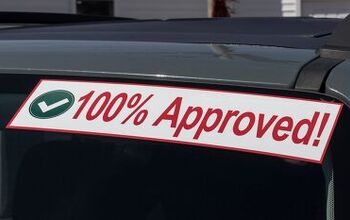While America Slept. Saturday, December 13, 2008

Canada ready to help – if U.S. goes first: Canada’s industry minister Clement said that the Canadian government has agreed to provide aid to automakers – as soon as the U.S. government approves a rescue package, says Reuters. The amount of money Canada is proposing is based the country’s 20 percent share of the auto industry. The more the U.S. shakes loose, the more Canada’s 20 percent share will amount to.
Japanese strength hurts Japan: Japan’s automakers will lose $2.2b in profits in the current fiscal year if the yen remains at current high levels against the dollar, the Nikkei (sub) reports. Toyota’s full-year operating profit falls by $450m for every 1-yen decrease in the value of the dollar. Most automakers have an exchange rate of 100 yen to the dollar in their budgets. If the yen stays stronger than planned, it’ll mean itai-itai (major pain) for their books. The Japanese fiscal year usually ends in March. Markets have a perverse way of regulating themselves. And governments have a tendency towards tinkering with the market when they see fit. Some, amongst them the Financial Times, expect an engineered drop of the Yen before March.
Japanese unions want more: Toyota Motor Workers’ Union is unimpressed by the plight of the company, and is expected to demand steep pay increase in the upcoming spring wage negotiations, the Nikkei (sub) learned. That would be the fourth annual pay increase in a row. In tune with the current discussions, the union argues that the increase would “boost domestic demand” in addition to maintaining living standards.
Japanese makers make less: Mazda will lower Japanese production by more than 100,000 in the fiscal year ending in March, on top already planned reductions of 73,000, the Nikkei (sub) reports. Nissan plans to cut domestic output by another 72,000 units. Fuji Heavy Industries will make a follow-up reduction of 40,000 vehicles. Japanese automakers are expected to reduce output for the current fiscal year decline by about 1 million units in Japan and around 2 million units worldwide.
Nissan sees growth in China: Meanwhile in China, Nissan forecasts 2009 sales 12 to15 percent higher than in 2008, Gasgoo says. Toshiaki Otani, general manager of Dongfeng Nissan Passenger Vehicle Co., thinks that China will be less influenced by the international economic crisis, compared with the US, Japan, and Europe. Dongfeng has been repeatedly named as being in talks with GM to take over some “assets” and with Ford, to take over Volvo.
Volkswagen stops walk on water, sinks 16.5 percent in November: VeeDub’s vaccine against the motor malaise must have lost its efficacy. Most of the year, VW issued reports and forecasts along the lines of “what, me worry?” Now, the bad news: VW’s worldwide sales tanked 16.5 percent in November, Automobilwoche (sub) reports. Only consolation: For the first eleven months, VW still had a growth of a little less than a percent. With a little luck, VW will end the year where they were last year. 2009 will be tough.
Opel thinks about taking Dudenhöffer to court: Watch out, Robert Farago. Opel has given its in-house legal eagles a launch order, das Autohaus writes. Their task: Look into legal steps against motor-mouth Professor Dudenhöffer. He prognosticated that GM would go bankrupt at year’s end if no bail-out is forthcoming, and that Opel would follow “latest half a year later.” We’d say that’s one of the more reasonable assumptions of the fast-talking professor, but Opel and their workers want to put a legal sock in his mouth. In related news, the German government has indicated that they are willing to help Opel. All Opel has to do is come to Berlin, say “pretty please,” and ask. And possibly make some disclosures and warranties they are not ready to come up with.
No witty remarks necessary, leave it to the Financial Times: “Forget about the Big Three. The real bail-out – in Italy, anyway – is taking place in that other great engine of economic activity: cheese. Producers of parmigiano in the Emilia-Romagna region smell the pungent whiff of trouble. With many selling their cheese at below cost, parmigiano makers are facing the prospect of going out of business – some are even using their cheese as collateral against bank loans they are using to pay for workers’ salaries. Now Luca Zaia, the big cheese for agriculture in the Italian government, has intervened, announcing a €50m bail-out for the celebrated formaggio.”

Bertel Schmitt comes back to journalism after taking a 35 year break in advertising and marketing. He ran and owned advertising agencies in Duesseldorf, Germany, and New York City. Volkswagen A.G. was Bertel's most important corporate account. Schmitt's advertising and marketing career touched many corners of the industry with a special focus on automotive products and services. Since 2004, he lives in Japan and China with his wife <a href="http://www.tomokoandbertel.com"> Tomoko </a>. Bertel Schmitt is a founding board member of the <a href="http://www.offshoresuperseries.com"> Offshore Super Series </a>, an American offshore powerboat racing organization. He is co-owner of the racing team Typhoon.
More by Bertel Schmitt
Latest Car Reviews
Read moreLatest Product Reviews
Read moreRecent Comments
- Fred I would get the Acura RDX, to replace my Honda HR-V. Both it and the CRV seats are uncomfortable on longer trips.
- RHD Now that the negative Nellies have chimed in...A reasonably priced electric car would be a huge hit. There has to be an easy way to plug it in at home, in addition to the obvious relatively trickle charge via an extension cord. Price it under 30K, preferably under 25K, with a 200 mile range and you have a hit on your hands. This would be perfect for a teenager going to high school or a medium-range commuter. Imagine something like a Kia Soul, Ford Ranger, Honda CR-V, Chevy Malibu or even a Civic that costs a small fraction to fuel up compared to gasoline. Imagine not having to pay your wife's Chevron card bill every month (then try to get her off of Starbuck's and mani-pedi habits). One car is not the solution to every case imaginable. But would it be a market success? Abso-friggin-lutely. And TTAC missed today's announcement of the new Mini Aceman, which, unfortunately, will be sold only in China. It's an EV, so it's relevant to this particular article/question.
- Ajla It would. Although if future EVs prove relatively indifferent to prior owner habits that makes me more likely to go used.
- 28-Cars-Later One of the biggest reasons not to purchase an EV that I hear is...that they just all around suck for almost every use case imaginable.
- Theflyersfan A cheaper EV is likely to have a smaller battery (think Mazda MX-30 and Mitsubishi iMEV), so that makes it less useful for some buyers. Personally, my charging can only take place at work or at a four-charger station at the end of my street in a public lot, so that's a crapshoot. If a cheaper EV was able to capture what it seems like a lot of buyers want - sub-40K, 300+ mile range, up to 80% charging in 20-30 minutes (tops) - then they can possibly be added to some lists. But then the issues of depreciation and resale value come into play if someone wants to keep the car for a while. But since this question is asking person by person, if I had room for a second car to be garaged (off of the street), I would consider an EV for a second car and keep my current one as a weekend toy. But I can't do a 50K+ EV as a primary car with my uncertain charging infrastructure by me, road trips, and as a second car, the higher insurance rates and county taxes. Not yet at least. A plug in hybrid however is perfect.


































Comments
Join the conversation
Italy ... 'Who SAVED my cheese?' Who will save Toyota's exchange-rate itai-itai cheese? Weekend at Bernie's: Bernie Madoff would be the perfect party host, except for one thing: he's a scammer. Other than that, we cool. Or not.
I'm wondering...... Was this problem brought about by "Big Cheese", or is it the result of the "Little Cheeses" wanting too much money?